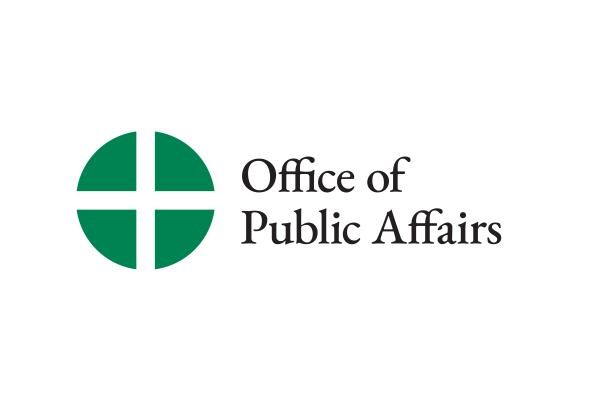Lutheran-Roman Catholic Dialogue Focuses On Death, Judgment, Resurrection
WASHINGTON (May 18, 2006)--Participants in the second meeting of the 11th round of the Lutheran-Roman Catholic Dialogue in the United States focused their discussions on death, judgment and resurrection.
WASHINGTON (May 18, 2006)--Participants in the second meeting of the 11th round of the Lutheran-Roman Catholic Dialogue in the United States focused their discussions on death, judgment and resurrection. The meeting was held April 20-23 in Phoenix.
The theme of the 11th round of the dialogue is, "The Hope for Eternal Life." The Roman Catholic co-chair is the Most Rev. Richard J. Sklba, Auxiliary Bishop of the Archdiocese of Milwaukee. The Lutheran co-chair is the Rev. Lowell G. Almen, Secretary of the Evangelical Lutheran Church in America (ELCA).
"Within the first two meetings of Round XI of the U.S. Lutheran-Roman Catholic Dialogue, the members of the dialogue team have established solid foundations for further discussion and development," Rev. Almen said. Though it's too early to know what will be the content of the report of Round XI, "on the basis of the initial papers and discussion, I expect that members throughout the churches will find the eventual report insightful and inspiring."
Bishop Sklba noted that "one of the more illuminating and instructive aspects of the meeting was the manner in which both Lutheran and Catholic scholars were able to reflect on the developing history of their own respective practices since the Reformation." The various ways in which each of our traditions has imagined and described the state of the justified immediately after death "inevitably reflected the various currents of thought in vogue at the time."
"I look forward to a future discussion of the meaning of Dr. Martin Luther's 71st thesis, namely, that 'indulgences are apostolic,'" Bishop Sklba continued. "These serious conversations, especially in view of their pastoral implications, are extremely fruitful."
Calling the dialogue "one of the most enjoyable meetings in my calendar each year -- always substantial, very cordial and extremely informed," Bishop Sklba added that he looks forward to the semi-annual gatherings "with great anticipation."
In this meeting the participants discussed several papers. Papers presented by Roman Catholic representatives were:
-- "Reception of 1 Corinthians 3" by the Rev. Joseph A. Fitzmyer, S.J., Jesuit community, Georgetown University, Washington, D.C.
-- "Death, Judgment and Resurrection to Eternal Life in the Catholic Manuals" by Dr. Christian David Washburn, lecturer, systematic theology, St. Charles Borromeo Seminary, Drexel Hill, Pa.
--"Death, Judgment and Resurrection in 20th and 21st Century Catholic Theology" by Dr. Margaret O'Gara, faculty of theology, University of St. Michael's College, Toronto
-- "Is There Time and Space in Purgatory" by Dr. Susan K. Wood, S.C.L., Department of Theology, Marquette University, Milwaukee.
Papers presented by ELCA representatives were:
-- "Death and Judgment" by the Rev. John H. P. Reumann, emeritus professor of New Testament and Greek, Lutheran Theological Seminary at Philadelphia
-- "Death and Judgment with focus on 'Interim States'" by the Rev. Stephen J. Hultgren, assistant professor, Department of Theology, Fordham University, Bronx, N.Y.
--"Death, Judgment and Resurrection in Luther's Theology" by the Rev. Theodore W. Asta, associate to the bishop, ELCA New England Synod, Worcester, Mass.
-- "Death, Judgment and Resurrection in Lutheran Manuals and Standard Pre-20th Century Theology" by Dr. Michael J. Root, professor of systematic theology and dean, Lutheran Theological Southern Seminary, Columbia, S.C.
-- "Death, Judgment and Resurrection in 20th and 21st Century Lutheran Theology" by the Rev. Randall R. Lee, executive director and assistant to the bishop, ELCA Ecumenical and Inter-Religious Affairs, Chicago
-- "The Reformation of the Dead: Death and Ritual in Early Modern Germany" by the Rev. Winston D. Persaud, Wartburg Theological Seminary, Dubuque, Iowa
The new round of dialogue opened in December 2005, 40 years after the first talks between the two religious traditions began in the United States. This round will address Lutheran-Roman Catholic differences over issues relating to the Christian's life beyond death, including issues such as purgatory, indulgences, and masses and prayers for the dead.
Interest in "The Hope for Eternal Life" is related to the signing of the Joint Declaration on the Doctrine of Justification (JDDJ). The current round will address some topics identified in the development and completion of the JDDJ.
The JDDJ was signed by leaders of the Lutheran World Federation (LWF) and The Vatican in Augsburg, Germany, on Oct. 31, 1999. With the JDDJ, the LWF and the Vatican agreed to a basic understanding of the doctrine of justification and declared that certain 16th century condemnations of each other no longer apply.
The next meeting of the Lutheran-Roman Catholic Dialogue is planned for Oct. 12-15 in Baltimore.
Dialogue participants welcomed the Rev. James Massa, who recently assumed the role of executive director, The Secretariat for Ecumenical and Interreligious Affairs, U.S. Conference of Catholic Bishops (USCCB).
Other Roman Catholic representatives to the dialogue are:
-- Bro. Jeffrey Gros, professor of church history, Memphis Theological Seminary, Memphis, Tenn.
--The Rev. George H. Tavard, A.A., emeritus professor of theology, Brighton, Mass.
-- The Rev. Jared Wicks, S.J., Jesuit community, John Carroll University, University Heights, Ohio
Other ELCA representatives to the dialogue are:
-- Dr. Lois E. Malcolm, associate professor of systematic theology, Luther Seminary, St. Paul, Minn.
-- The Rev. Marcus J. Miller, bishop, ELCA Northeastern Ohio Synod, Cuyahoga Falls, Ohio.
--The Rev. Paul A. Schreck, associate for bilateral dialogues, ELCA Ecumenical and Inter-Religious Affairs, and executive assistant, ELCA Office of the Secretary.
In addition to leaders and theologians from the Catholic Church and the ELCA, the Lutheran Church-Missouri Synod has two participants in the dialogue: The Rev. Samuel H. Nafzger, executive director, LCMS Commission on Theology and Church Relations, St. Louis, and the Rev. Dean Wenthe, president, Concordia Theological Seminary, Fort Wayne, Ind.

